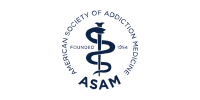On-Demand Online Courses
On-demand online courses are self-paced, static courses that can be completed at any time through our asynchronous online learning platform. CCSME members (including staff at member organizations) can access these courses for free using their member coupon code at checkout.
Showing 1–9 of 53 results
-

Introduction to Psychosis-Informed Mental Health Care (On-Demand)
$5.00 Read MorePresenter: Rebecca Jaynes, LCPC | The Psychosis-Informed Care training is for anyone in the mental health field who would like to learn how to assess early psychosis in their practice and incorporate psychosis-informed care into other treatment models.
-

Moral Injury in Behavioral Healthcare: Ethics in the Big Picture (on-demand)
$5.00 Read MoreTrainer: Rosalie Genova, LCPC, CCS
Learn what the psychosocial phenomenon of moral injury is, and how you may encounter and address it as a behavioral health professional.
-

Self-care as an Ethical Practice (On-Demand)
$5.00 Read MoreSelf-care is important to help counselors maintain their personal wellness to be able to practice to the full standards of their field. In this course, you will learn about how engaging in self-care can be a strategy to maintain strong ethical practices as a counselor
-

Storytelling 101 for Behavioral Health and Recovery
$5.00 Read MoreThis course will introduce participants to the art and science of storytelling, with a focus on crafting and sharing narratives to uplift people addressing mental health challenges and use disorders.
-

The ASAM Criteria 4th Edition Online Foundations Course (on-demand)
$0.00 Read MoreThis 4-hour online course is designed to help healthcare professionals develop patient-centered service plans and make objective decisions during the Level of Care Assessment and Treatment Planning Assessment for individuals with addictive, substance-related, and co-occurring conditions.
-

Assessing Risks and Mitigation When Prescribing Opioids
$5.00 Read MoreThis course reviews strategies such as risk assessment tools and protocols when prescribing opioids that support patient/client safety and mitigate risk.
-

The Brain’s Basis of Serious Psychiatric, Stress and Substance Use Disorders
$5.00 Read MorePresented by Carl Salzman, MD | This course provides a review of both normal and abnormal brain function and examines the relationships between brain dysfunction, psychiatric disorders and substance use disorders.
-

Change Attitudes, Change Actions, and Champion Recovery
$5.00 Read MoreThis course explores the impact of stigma on people in and seeking recovery from substance use disorder, and identifies concrete ways to adopt language and take actions to align with and support the development of recovery-oriented language, recovery-oriented care, and recovery capital in ourselves, our organizations, and our communities.
-

Community Reinforcement and Family Training (CRAFT)
$5.00 Read MoreHow to Help Family Members Affected by a Loved One’s Substance Use
This course discusses the main principles of CRAFT and some accessible resources for clinicians and patients alike.









